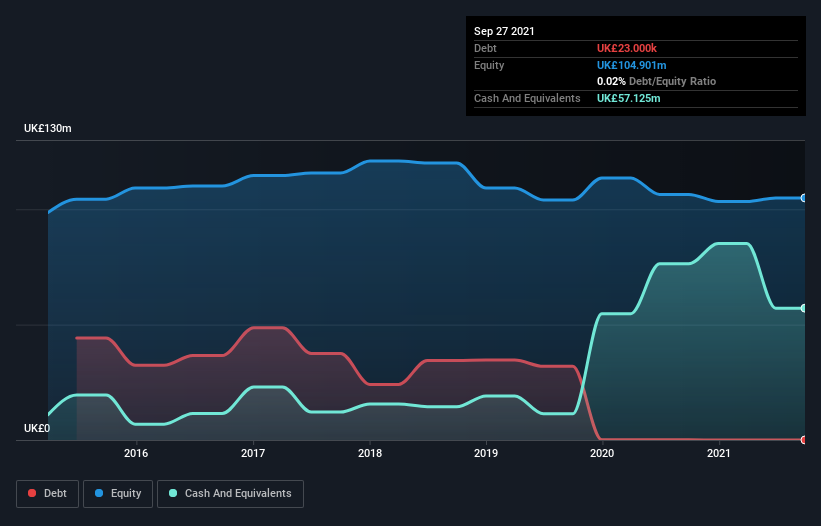We're Interested To See How Naked Wines (LON:WINE) Uses Its Cash Hoard To Grow
There's no doubt that money can be made by owning shares of unprofitable businesses. For example, biotech and mining exploration companies often lose money for years before finding success with a new treatment or mineral discovery. But while history lauds those rare successes, those that fail are often forgotten; who remembers Pets.com?
So, the natural question for Naked Wines (LON:WINE) shareholders is whether they should be concerned by its rate of cash burn. For the purposes of this article, cash burn is the annual rate at which an unprofitable company spends cash to fund its growth; its negative free cash flow. The first step is to compare its cash burn with its cash reserves, to give us its 'cash runway'.
Check out our latest analysis for Naked Wines
When Might Naked Wines Run Out Of Money?
A company's cash runway is the amount of time it would take to burn through its cash reserves at its current cash burn rate. As at September 2021, Naked Wines had cash of UK£57m and such minimal debt that we can ignore it for the purposes of this analysis. Importantly, its cash burn was UK£17m over the trailing twelve months. That means it had a cash runway of about 3.4 years as of September 2021. A runway of this length affords the company the time and space it needs to develop the business. Importantly, if we extrapolate recent cash burn trends, the cash runway would be a lot longer. You can see how its cash balance has changed over time in the image below.
Is Naked Wines' Revenue Growing?
We're hesitant to extrapolate on the recent trend to assess its cash burn, because Naked Wines actually had positive free cash flow last year, so operating revenue growth is probably our best bet to measure, right now. We think that it's fairly positive to see that revenue grew 26% in the last twelve months. While the past is always worth studying, it is the future that matters most of all. For that reason, it makes a lot of sense to take a look at our analyst forecasts for the company.
Can Naked Wines Raise More Cash Easily?
While Naked Wines is showing solid revenue growth, it's still worth considering how easily it could raise more cash, even just to fuel faster growth. Generally speaking, a listed business can raise new cash through issuing shares or taking on debt. Commonly, a business will sell new shares in itself to raise cash and drive growth. By comparing a company's annual cash burn to its total market capitalisation, we can estimate roughly how many shares it would have to issue in order to run the company for another year (at the same burn rate).
Naked Wines has a market capitalisation of UK£384m and burnt through UK£17m last year, which is 4.4% of the company's market value. Given that is a rather small percentage, it would probably be really easy for the company to fund another year's growth by issuing some new shares to investors, or even by taking out a loan.
Is Naked Wines' Cash Burn A Worry?
It may already be apparent to you that we're relatively comfortable with the way Naked Wines is burning through its cash. In particular, we think its cash runway stands out as evidence that the company is well on top of its spending. But it's fair to say that its revenue growth was also very reassuring. Taking all the factors in this report into account, we're not at all worried about its cash burn, as the business appears well capitalized to spend as needs be. An in-depth examination of risks revealed 1 warning sign for Naked Wines that readers should think about before committing capital to this stock.
Of course, you might find a fantastic investment by looking elsewhere. So take a peek at this free list of companies insiders are buying, and this list of stocks growth stocks (according to analyst forecasts)
Have feedback on this article? Concerned about the content? Get in touch with us directly. Alternatively, email editorial-team (at) simplywallst.com.
This article by Simply Wall St is general in nature. We provide commentary based on historical data and analyst forecasts only using an unbiased methodology and our articles are not intended to be financial advice. It does not constitute a recommendation to buy or sell any stock, and does not take account of your objectives, or your financial situation. We aim to bring you long-term focused analysis driven by fundamental data. Note that our analysis may not factor in the latest price-sensitive company announcements or qualitative material. Simply Wall St has no position in any stocks mentioned.


